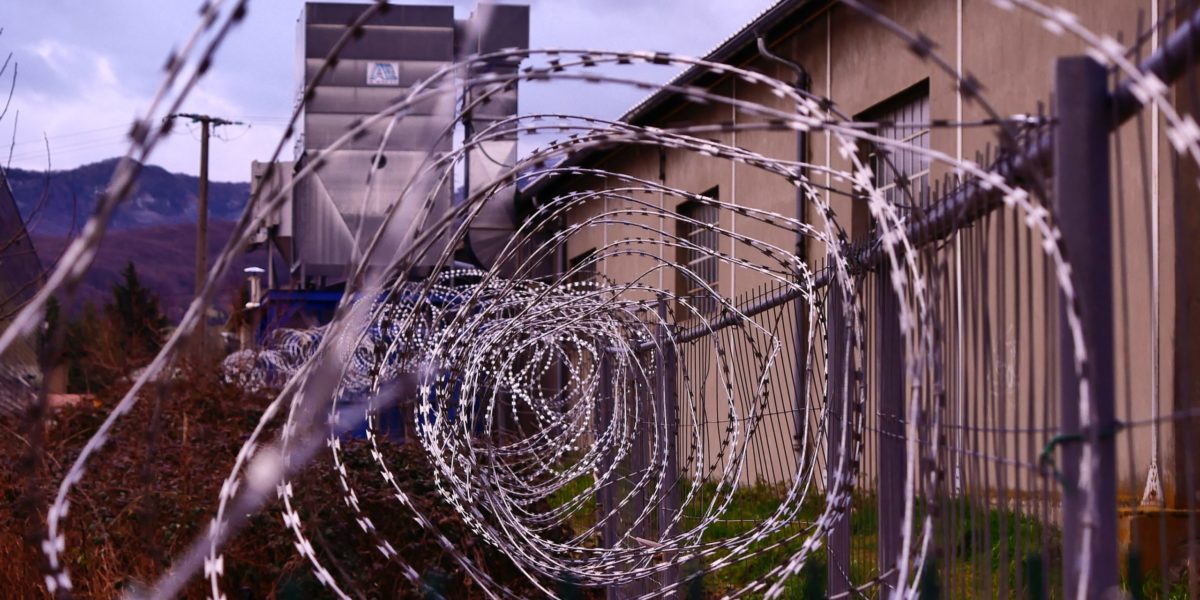A new bill to remove mandatory minimum sentences is being called “deeply cynical” and an “incomplete policy” by Toronto journalist and author Desmond Cole.
Cole, who wrote the 2020 Canadian bestseller The Skin We’re In: A Year of Black Resistance and Power, has called for defunding the Toronto police with funds redistributed to combat poverty, systemic racism, and mental illness among Canadians.
While Cole is glad to see the federal government reviewing arbitrary punishments, he says it doesn’t go far enough.
Last week, Canada’s Minister of Justice and Attorney General David Lametti introduced a bill to amend the Criminal Code and the Controlled Drugs and Substances Act (CDSA) to remove several mandatory minimum sentences.
Bill C-5 would see mandatory minimum penalties (MMPs) repealed for 14 offences in the Criminal Code, while all six MMPs would be repealed in the CDSA.
The bill seeks to make responses to criminal conduct “fairer and more effective, in an effort to “address systemic issues related to existing sentencing policies.”
Cole is not convinced.
“They’ve really focused on the idea of mandatory minimums being harmful to Black and Indigenous people,” Cole said. “You have to ask yourself then, what about all of the other things they’re leaving in place that do the same thing?”
Cole pointed to the biggest mandatory sentences in the country – life sentences.
“Those are the sentences that actually take the most away from people who have to go to jail,” Cole said. “The government is not saying that there won’t be mandatory life sentences anymore…That kind of sentencing also has a very serious effect on Black and Indigenous communities.”
Cole also believes mandatory minimums should be removed for crimes involving gangs due to the stigma of gang members being Black or Indigenous.
“As a Black or Indigenous person, this stigma of ‘gang’ continues to follow you after you’re incarcerated. It denies you many abilities and privileges in jail that others would have because they are not designated as gang members,” Cole explained.
Cole believes more meaningful action can be taken to reform the country’s criminal justice system.
“I just think the government needs to spare us all of the rhetoric about race, when the sentences that they are keeping up will also continue to disproportionately put Black and Indigenous people in jail,” Cole said.
In an emailed statement to rabble.ca, Lametti said:
“This bill reinforces our government’s commitment to addressing the opioid crisis and those impacted by this public health crisis. C-5 will require police and prosecutors to consider alternative measures for simple drug possession offences, such as diversion to addiction treatment programs, rather than laying criminal charges or prosecuting people.”
The minister said the government “will continue to address the social determinants of crime.”
Indigenous adults made up 30 per cent of Canada’s incarcerated population: 2020
The bill marks a move towards criminal justice reform in Canada, as racialized Canadians face disproportionate rates of incarceration.
In 2020, Indigenous adults made up 30 per cent of Canada’s federally incarcerated inmates, despite representing just five per cent of the country’s adult population. Even starker, “the proportion of Indigenous offenders admitted with an offence punishable by an MMP has almost doubled between 2007-08 and 2016-17, from 14 per cent to 26 per cent.”
Black Canadians also make up seven per cent of the federal offender population as of 2018-19, despite being only three per cent of the Canadian population.
Among the 14 offences having MMPs repealed are: robbery with a firearm, extortion with a firearm, using a firearm or imitation firearm in commission of offence, weapons trafficking and selling tobacco products and raw leaf tobacco.
While these offences still remain crimes, the act of repealing mandatory minimums will allow judges to exercise more discretion when it comes to sentencing cases.
Minimum sentences would remain for high crimes including murder, treason, sexual offences, impaired driving offences and some firearm offences.
Expert calls on government to end the incarceration of pregnant people, caregivers
Martha Paynter is the board chair and co-ordinator at Women’s Wellness Within, a volunteer-based non-profit organization that provides resources and advocacy for clients who have experienced criminalization in “pregnancy, for abortion, childbirth, infant feeding, and newborn care.”
Paynter has long advocated for an end to the incarceration of pregnant people as well as primary caregivers of children and people with disabilities.
“We do not serve anyone in the public by incarcerating pregnant people and people who take care of others,” Paynter said, noting that 42 per cent of women who were incarcerated at the onset of the COVID-19 pandemic in Nova Scotia were sent home from jail out of health and safety precautions.
Paynter noted that since mandatory minimums were introduced, the number of women behind bars has increased at a much higher rate, while the same hasn’t happened to prisons designated for men.
“Also within that, there’s this very disproportionate impact on Indigenous women,” Paynter said. “We see the evidence of that racist policing manifest in terms of racist implications in the prison population.”
Paynter pointed out that it’s not just individuals who suffer from mandatory minimums, but also their loved ones and communities.
“When women go to prison, very often they are separated from their children…and their children can enter the foster care system,” Paynter said, noting 52 per cent of children in the foster care system are Indigenous.
Paynter noted that people are increasingly recognizing that drug use is deeply connected to trauma.
“We see this intergenerational pattern where colonial and racist systems caused all this trauma, and then we see drug-use as a coping mechanism,” Paynter said. “Then we see the criminalization of certain types of drug users and their incarceration, and their separations from their family.”



